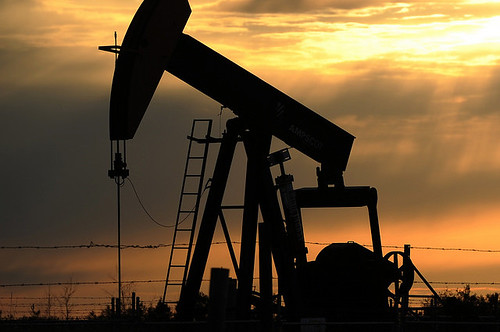In an era marked by technological advancements and a growing emphasis on efficiency and flexibility, the oil and gas industry is undergoing a transformative shift in its approach to workspace design. One of the key contributors to this evolution is the adoption of modular offices. These innovative workspaces are proving to be a game-changer for oil and gas companies, offering a range of benefits that enhance productivity, safety, and sustainability. Here are 12 Ways that Modular Offices Help the Oil and Gas Industry.
1. Rapid Deployment
One of the most significant advantages of modular offices for oil and gas companies is their rapid deployment capability. Traditional construction projects can take months or even years to complete, causing delays in operations. Modular offices, on the other hand, can be assembled and operational in a fraction of the time. This speed allows companies to respond swiftly to changing demands, enter new markets, or set up temporary facilities for short-term projects.
2. Flexibility in Design
Modular offices offer a high degree of flexibility in design, allowing oil and gas companies to customize their workspaces according to specific needs. This adaptability is crucial in an industry where operations can vary widely, from exploration and drilling to refining and distribution. Modular offices can be configured to accommodate various functions, making them an ideal solution for companies with diverse and dynamic requirements.
3. Cost-Effective Solutions
The modular construction process often proves more cost-effective than traditional building methods. Reduced construction time, minimized material waste, and streamlined project management contribute to lower overall costs. For oil and gas companies facing budget constraints, modular offices offer a practical and efficient solution that doesn’t compromise on quality or safety standards.
4. Enhanced Safety Measures
Safety is a top priority in the oil and gas industry, where operations involve hazardous materials and complex processes. Modular offices are designed with safety in mind, incorporating features such as fire-resistant materials, advanced ventilation systems, and state-of-the-art security measures. Additionally, these offices can be equipped with the latest technology for monitoring and responding to emergencies, ensuring the well-being of employees and the protection of valuable assets.
See Also: 7 Ways Mobile Offices Can Improve Jobsite Safety
5. Sustainable Practices
As sustainability becomes a central focus across industries, modular offices align with the environmental goals of oil and gas companies. The construction of modular offices produces less waste compared to traditional building methods, and many of these structures are designed with energy-efficient features. Additionally, the ability to relocate and reuse modular components reduces the environmental impact associated with the construction and demolition of permanent structures.
6. Remote Operations and Connectivity
In the digital age, connectivity is crucial for efficient operations. Modular offices can be equipped with advanced communication technologies, enabling seamless connectivity for remote operations. This capability is especially beneficial for oil and gas companies managing multiple sites or operating in remote locations. It enhances collaboration, facilitates real-time decision-making, and improves overall operational efficiency.
7. Remote Monitoring and Control
Modular offices can integrate advanced monitoring and control systems, allowing companies to remotely oversee operations. This feature is particularly valuable in the oil and gas sector, where real-time data on equipment performance, environmental conditions, and safety parameters is critical. Remote monitoring minimizes the need for on-site personnel, reducing exposure to potential hazards and optimizing resource allocation.
8. Adaptation to Harsh Environments
Oil and gas operations often take place in harsh and remote environments, including deserts, offshore platforms, and arctic regions. Modular offices are designed to withstand extreme conditions, providing a comfortable and secure workspace for employees. These structures can be equipped with specialized insulation, climate control systems, and corrosion-resistant materials to ensure durability in challenging settings.
9. Compliance with Regulations
The oil and gas industry is subject to strict regulatory standards. Modular offices are constructed with compliance in mind, meeting industry-specific regulations and safety codes. This ensures that companies can establish workspaces that adhere to legal requirements, reducing the risk of regulatory violations and associated penalties.
10. Scalability for Growing Operations
As oil and gas companies expand their operations, the need for scalable workspace solutions becomes evident. Modular offices offer a scalable option, allowing for easy expansion or downsizing as business needs evolve. This adaptability ensures that companies can efficiently manage changes in workforce size, equipment requirements, and operational scale without the need for extensive construction projects.
11. Improved Employee Morale and Well-being
The design of modular offices prioritizes employee comfort and well-being. These workspaces can incorporate features such as ergonomic furniture, natural light, and well-ventilated spaces. By providing a conducive and comfortable working environment, modular offices contribute to improved employee morale, satisfaction, and productivity, which are crucial factors in the high-stakes and demanding oil and gas industry.
12. Reduced Disruption During Renovations
When oil and gas facilities undergo renovations or upgrades, minimizing operational disruption is a top priority. Modular offices can be employed to provide temporary workspaces, allowing companies to maintain essential functions while construction activities take place. This reduces downtime and ensures that crucial operations continue without significant interruptions.
In summary, there are many ways that modular offices help the oil and gas industry. Consider the adoption of modular offices offers a multifaceted approach to addressing the diverse challenges faced by oil and gas companies. From ensuring compliance with regulations to providing scalable and comfortable workspaces, these innovative solutions are reshaping the industry’s approach to infrastructure, emphasizing efficiency, safety, and adaptability.
By: Nate Nagle
